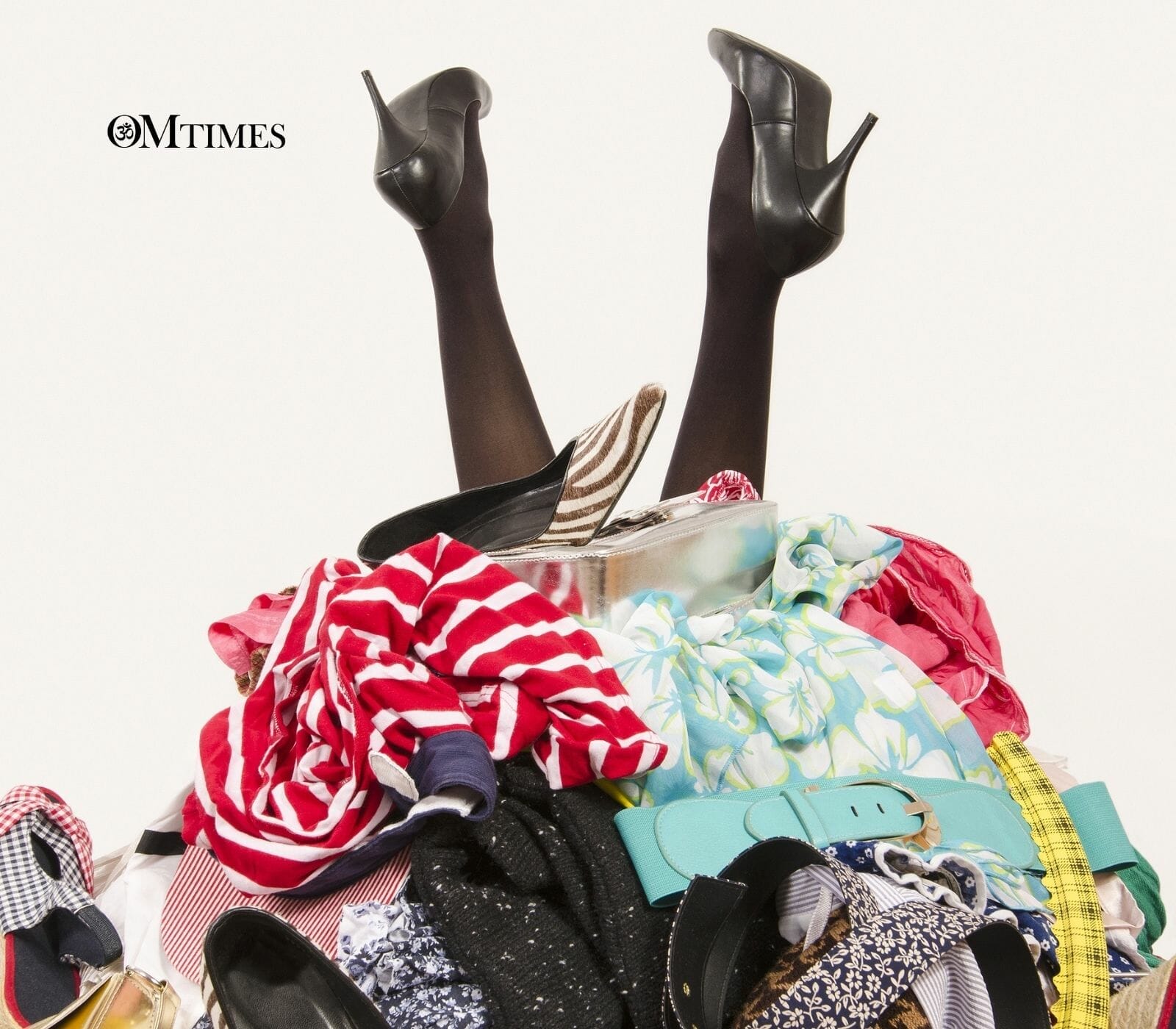When Someone Else’s Clutter Becomes YOUR Problem

Most people seek out de-cluttering and organizing advice for themselves. But I’ve noticed a few book titles that address how to deal with another person whose clutter can affect you. The most common scenario is likely the home environment, where a spouse or other family member has clutter issues even to the point of hoarding.
Dealing with the Clutter of Others
One of my Feng Shui clients lived with her mother and father when I first met her. Neither she nor her father could confront the mother effectively about the hoarding problem. When the father died, the mother got even worse with her clutter, presumably because she was that much more depressed after her husband passed away. It wasn’t until her mother died a few years later that my client could clean up the house, de-clutter, and really transform the home into a comfortable living space. This client even proudly sent me a photo of a formerly cluttered room that she cleared out and turned into a neat and tidy Air BNB rental room.
I have even known a few Professional Organizers who were married to spouses that were clutter-bugs. That seems more than ironic, somewhat probably karmic on some level. I’ve seen how several different scenarios could be lumped into two basic categories. One category is the person who really is hoarding and saving things with no value or current purpose. I could give countless examples, but when someone is saving yogurt containers or all of their junk mail, then we know we have the makings of PackRat Syndrome.
The other big category is the person who saves a lot of things that are functional and possibly worth keeping. Still, storing these items is overflowing and unsightly to the family member who is neater and more organized. Why should someone get rid of their surfboard, power tools, or things a person does use occasionally, and which have indisputable monetary value or would be difficult to replace?
My significant other sees the practicality in storing things in emptied plastic kitty litter containers. They are, in fact, good quality containers with lids and handles, especially for emergency supplies. But, I don’t like seeing them stacked up against the wall in the den. My personal solution to the wall of miscellaneous “things” in the den was to build a massive closet in the room, enough to contain all those items and get them out of sight. I did not have to ask him to get rid of those items, and now when I walk into the room, all the mishmash is behind closet doors. The room actually looks more prominent even though the closet takes up more than 3 feet in depth from the original space. Not seeing the wall of things makes the room feel bigger.
Sometimes the messy person confines their stuff to their own home office, man-cave, teen bedroom, or personal closets. Other times, one person’s clutter overflows into other family members’ personal space or shared space. This is really where the tension mounts. In fact, for the family member who can close the door on the one-room designated as the junk room, there is a lot less animosity than the house, which is filled with one person’s clutter in every room. Many years ago, a Feng Shui client told me woefully out of earshot of his wife, that he only bought the bigger house so that it could handle the wife’s perpetual hoarding and compulsive shopping.
I have described silently or not-so-silently people putting up with the clutter and disorganization created by another individual. This is not healthy for either party, or it can also teach nasty habits to children in the house.
When the problem is massive, then it may be necessary to get family counseling, therapy, and even medication for the person who is chronically depressed or unmotivated—everything to maintain a semblance of average living standards. There could be real disorders such as Obsessive-Compulsive Disorder or Attention Deficit Disorder contributing to the mounting clutter and in need of medical or psychiatric intervention.
Short of that, bringing in a non-judgmental Organizer would seem essential and really provide an emotional relief for all involved. In the same way that no one wants to be told by another person to go on a diet and lose weight, no one wants to be shamed into de-cluttering. The project needs to be planned and executed with compassion and appeal to the person who has been procrastinating. In fact, I have never encountered a clutterer who defended their mess as usual. They usually just feel overwhelmed and incapable of changing it, even while they wish they could do so.
Having a lot of things around a person can make them feel safe. Stripping them of these physical possessions could be as traumatic as the loss of a loved one. If it is any comfort, some really brilliant people are clutterers. It may go with the territory. So, it is not the result of lack of intelligence or even common sense: Quite the opposite. And still, living with someone whose standards are so different takes a special kind of patience and compromise.
I like to keep as many surfaces in the house as free of miscellaneous objects that are not used frequently. I recently bought a slow cooker with the plan to use it weekly for bone broth and soups. Why put this large bulky item away behind a cupboard when it is going to be used regularly? Its stainless-steel covering looks nice with my gray granite countertops and gray and white cabinets. I personally don’t see it as “clutter,” but I am aware that this is purely a subjective perspective. My significant other likes to have lots of little widgets on his desk and tiny ceramic dog and cat figurines.
I might think they are cluttery knick-knacks, but they are whimsical fun objects to have around him. We both agreed to have a two-foot-high standing Santa Claus light on the front porch all year round for different reasons. He likes it because he is sentimental about Christmas. I agreed to let Santa Clause hang out all year round on our porch because I think it is like a “kitschy” gnome that boldly ignores tradition regarding when it is appropriate to put up or take down holiday decorations. The point being is that I decided to have a sense of humor and embrace its cute tackiness.
You will also enjoy Cleaning Out Your Energy Closet
Click HERE to Connect with your Daily Horoscope on OMTimes!
Visit Our Astrology Store for Personalized Reports
About the Author
Connect with Kartar Diamond and Kartar’s School of Traditional Feng Shui ® at fengshuisolutions.net
Kartar Diamond grew up in Southern California in the 1970’s and always had an interest in metaphysics and holistic lifestyle choices. She met Master Sang in 1992 became one of his senior graduate instructors from the American Feng Shui Institute. Kartar founded her own company, Feng Shui Solutions, and has advised thousands of clients and students about the healthful benefits of this still greatly misunderstood practice.






